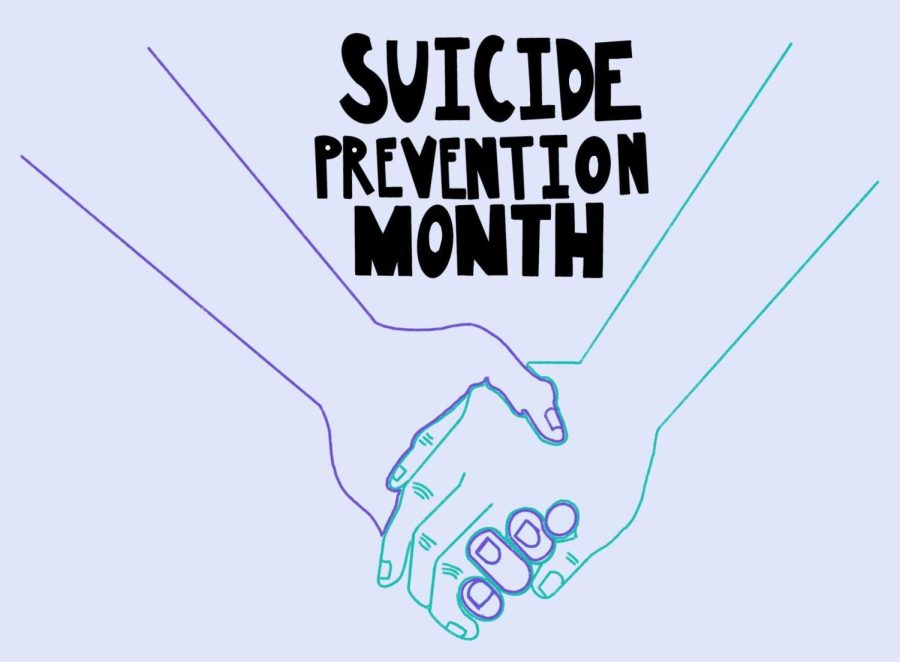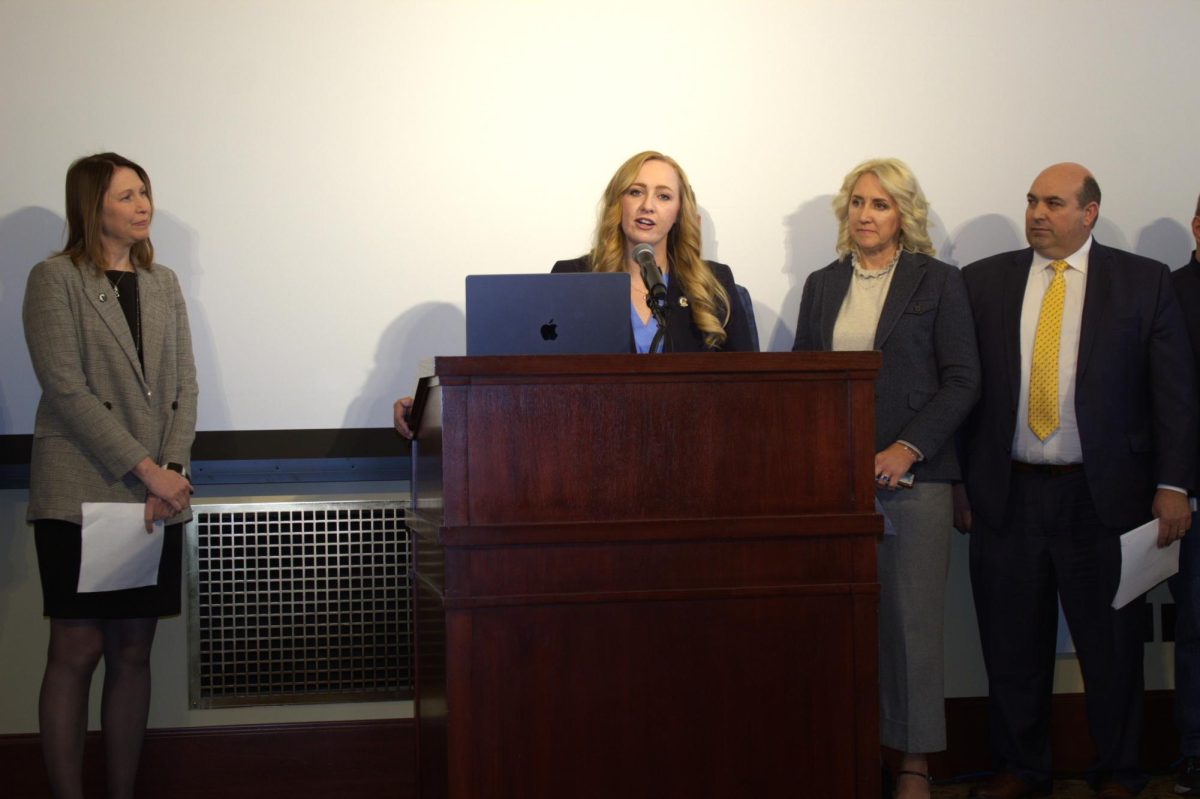U Honors September Suicide Prevention and Awareness Month
(Design by Brenda Payan Medina | The Daily Utah Chronicle)
September 21, 2022
For the month of September, the University of Utah is honoring Suicide Prevention Awareness Month to remind students of the many resources the U provides for those who are experiencing mental health struggles and/or feeling suicidal.
In a recent press conference, Gov. Spencer Cox announced that Utah has a higher suicide rate than most other states, with Utah having the “6th highest rate in the nation right now.”
Suicide is a public health concern across the United States and a crisis that can be prevented, according to the CDC. In 2020 alone, there was one death by suicide every 11 minutes, with suicide being the leading cause of death for 10-34-year-olds, according to the Huntsman Mental Health Institute.
Mental Health Services at the U
One of the resources the U provides is the University Counseling Center, which is free and accessible to all students, offering therapy to those who are dealing with mental health problems and providing them with the skills to combat them in the future.
For students who are experiencing a mental health crisis and need more immediate help, there are several different crisis resource options for them to reach out to on campus, such as the 988 hotline, according to Rachel Lucynski, director of community crisis intervention and support services at the Huntsman Mental Health Institute. The institute staffs and operates the state’s 24/7 Suicide Prevention and Crisis services, including the statewide crisis line in Utah.
“We are the state’s only affiliate with the 988 suicide and crisis lifeline,” Lucynski said. “Any call from a Utah area code that goes to that 988 number is answered by our team.”
For people who are nervous about calling or seeing someone in person for mental health help, Lucynski suggested using the SafeUT Frontline app, a smartphone app designed to make finding support easier and more accessible.
“[The SafeUT Frontline app] is our crisis chat and school safety tip smartphone application,” Lucynski said. “It was developed by the University of Utah IT team and is available 24/7, being staffed by master’s level mental health clinicians, and is for students, parents, guardians and educators that are in the K-12 and higher education systems.”
The U also has options for those struggling with addiction and chronic pain at the Center of Mindfulness and Integrative Health Intervention Development, with ongoing studies being conducted, said Julia Mills, research assistant and analyst at the U.
“We’re trying to test whether mindfulness-based interventions can actually deliver reductions in chronic pain symptoms and can also help those who have opioid use disorder adhere to their treatment plans,” Mills said.
According to Mills, this treatment is not only effective in treating those with chronic pain and opioid addiction but has also been shown to better the mental health of the patients.
“It happens rather frequently when we get participants who are actually passively or sometimes actively suicidal,” Mills said. “There is significant evidence to support that the more therapeutic treatment is actually extremely effective in not just treating symptoms of chronic pain, not just treating symptoms of opioid use disorder and opioid misuse cravings, but also improving people’s overall wellbeing and feelings of positivity.”
Putting the Stigma Aside
While suicides in adolescents have increased over the past few years, frontline health workers have been experiencing more mental health struggles due to the pressure of the pandemic, which was why SafeUT Frontline was created, said Lucynski.
“It was created in 2020 in response to the global pandemic and the increased strain we were seeing on our frontline workers,” Lucynski said. “We will be recognizing that they have very challenging jobs and the pandemic was exacerbating the mental health impacts and stressors.”
Lucynski noted that the pandemic created extreme feelings of insecurity and fear in people around the nation, and suicidal thoughts were on the rise during this time.
“The first year of the pandemic, we saw a 32% increase in calls to the crisis line compared to the previous year,” Lucynski said. “There’s definitely been a huge mental health impact to the collective societal trauma that we have experienced.”
While the pandemic has had long-term effects on people both mentally and financially, Lucynski said the silver lining is more people are willing to talk about their struggles and how things are impacting their mental health.
“They were more willing to consider going to therapy and not feeling like there was so much shame and stigma around it, but that it was something that they needed to do to take care of themselves,” Luckynski said.
Lucynski encourages people who are currently experiencing mental health problems to reach out to any of the services on campus and to seek the support and care needed.
“It can be really scary to feel like you’re having these thoughts and that you’re alone,” Lucynski said. “It can be really overwhelming to recognize that life is maybe hard and you’re not sure how to cope with some of those stressors or challenges. But you’re not alone.”









